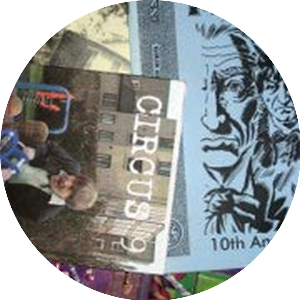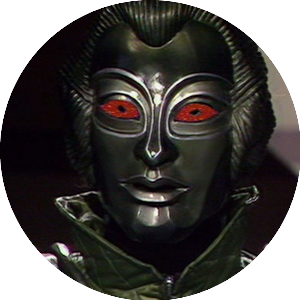Motivation
I had always had ambitions of writing for Doctor Who. I’d had short stories published, and I’d sent in a proposal to the Virgin New Adventures. But what I hadn’t done was finish anything I’d started that was that long. The BBC Books were 85,000 words, and everything I’d ever written aiming to be that long had always petered out around 15,000. But by 2000, some things had changed.
Firstly, I’d got better at my planning. Both Virgin and the BBC asked for full synopses as part of the submission process, so I’d gotten into the habit of writing one instead of just diving into a new novel. This meant that by 15,000 words - when I’d suddenly stop, wondering what actually happened next - I could keep writing on, even if my stamina was flagging. The other things was that I’d just finished a collection of Doctor Who fan fiction that I called Back From the Dead. It was a collection of short stories, but together they told a larger story … and one that clocked in at around 85,000 words.
I started to plot Heritage as the start of the next series of Back From the Dead stories, but in the back of my head was the idea of submitting it as a proposal to the BBC. When the story looked like it would be long enough, I made my mind up. Once it was rejected, it could go on the internet. But first … well, you never knew.
Inspiration
The original idea came from an article in the Daily Mirror panicking that some evil dictator would clone themselves an unstoppable army, and also an interview with Bonnie Langford on Esther talking about … well how much she’d been hated in her work over the years, her time as Mel on Doctor Who being no exception. It was also based fairly comprehensively on my favourite western of all time, Bad Day at Black Rock.
In Back From the Dead, I’d established a new arc for Ace, the Doctor’s companion. It involved the knowledge that her days were numbered: she was infected with an alien virus that was going to turn her into a monster, and it was inevitable. I had shown her moving from realisation into acceptance, and leaving the Doctor for a new life with UNIT. The idea for Heritage was that it would show the Doctor trying to cope once the inevitable had happened. It would be a solo Seventh Doctor story, with him being very much aware that Ace wasn’t with him.
Getting the Story
The story grew from a single scene I had written to get down an idea: in the middle of writing Back From the Dead, I had the idea of the Doctor attending a funeral but refusing to give the eulogy, and didn’t want to lose it just because it didn’t fit the story I was writing at that moment. The funeral scene went into the original proposal as part of the example of my writing that the BBC asked for, and only had minor changes made to it before becoming the epilogue in the final novel.
I eventually got round to starting the first proposal on 6th January 2000, a few days after I’d put the final part of Back From the Dead online. The shape of it came from rewatching Bad Day at Black Rock with a pen and notebook, and making a note of each of the major plot points. Some were left out, some changed, but it gave me a structure that I could pin my ideas for the story on. At that stage of my career, I had decided that structure was my biggest weakness, and I thought that leaning on somebody else’s story heavily was the only way I would ever get something good enough to be published.
The Pitch
The proposal required a full synopsis and a writing sample of 3000 words: my epilogue came up short, so I wrote the opening scene and used my sample to bookend the synopsis. All of that was put into an envelope and sent off to BBC Books on, where it then sat on their slush pile waiting to be discovered.
At the time, the BBC Books slush pile was legendary: it no longer exists – all Doctor Who books are strictly invite only – but at the time most fans submitting said they were waiting for anything up to six months for their submission to be read and rejected.
We were getting an awful lot of submissions back then – I forget how many, but it was hundreds a month! With relatively few novels every year now, and the stricter guidelines and tighter brief for each book, there just isn’t the ‘room’ – or the time – to pick stuff up from the slush pile and try to get it to fit. So almost all our fiction is specifically commissioned – I find the author I know can deliver the sort of thing I want, and we work together to make sure we get the right story.
It took a year for somebody to get back to me about Heritage, but I did my best to remain patient. I knew that the proposal had been received – they kindly posted back the postcard I included to confirm receipt – and told myself that the longer it was taking them to get back to me, the higher up the chain it must be moving. It didn’t occur to me to get angry about the wait: they didn’t have to look at my idea (and, as I say, they now don’t) and I was certain that any kind of fuss from me would lead to an automatic rejection.
So instead, I kept myself busy. 2000 was the year that Doctor Who charity anthologies were at their peak: four unofficial short story collections were sold with the fact that all the proceeds went to charity being used to dissuade the BBC lawyers from getting involved. They usually involved a mix of fan writers and writers from the official spin off media, and I managed to get short stories into three of them as a fan writer. I also wrote an article for Jade Pagoda of dos and don’ts for people submitting Doctor Who proposals to BBC Books, which I’d researched by talking to some of the authors frequenting the mailing list: one of the points I made was to follow the guidelines the BBC put out for the books, advice which I hadn’t taken since Heritage was based firmly around the death of a companion, and explicit no-no in the guidelines.
Did Justin Richards see any of that? Did it make him think I would be safe to hire for a proper Doctor Who Book?
I don’t know.
Neither do I, I’m afraid! To be honest I probably didn’t – I saw quite enough Who fiction from submissions that were worth a look from the slush pile plus the books I was editing, so I didn’t really go looking for more. I might have looked at the ‘Dos and Don’ts’ article, but I don’t recall it…
Sometimes, other work you do will get you noticed and lead to more work. Sometimes it won’t. You can never really be sure which particular piece of work might be seen and judged by a future editor … except for one: the work you are sending them. Whatever else, that story has to be good enough. And if it is … on 12th March 2001, Justin Richards in touch and said that he might be interested in Heritage, if I was willing to make some changes.
Editorial
There was only one thing that needed to change, but it would affect everything: Justin said that in the wake of the Paul McGann television move, everyone was pitching him solo Seventh Doctor novels, and he was reluctant to accept them. He suggested I work Ace into Heritage, which would help the length of the story: it hadn’t occurred to me that the amount of plot in a 2 hour film would only make about 40,000 words of prose, and so my story wasn’t long enough.
A common problem, actually – though usually from the prospective author assuming that what fits a 4-part TV story is about right for a novel. And it really isn’t!
Between me submitting my proposal and Justin replying, BBC Books had published a novel called Prime Time, in which the Doctor discovers that Ace is destined to die at some point in their near future. Given that my story pivoted on the discovery of a dead companion, having Ace in it would have a lot more resonance: Justin didn’t mention any of this – “we wanted to see if it would work, but not give away too much of what we were already planning” – but I have always assumed that I was allowed to break the guidelines only because, by chance, Heritage happened to fit in with an ongoing story the books were creating.
No – it was a strong story, and even if it hadn’t fit so nicely and thematically, I think we’d have done our best to make it work anyway. Generally, I didn’t have time to mess around too much with an author or proposal if I wasn’t fairly sure already that we’d go with it. I wouldn’t have said so, though – as you can never be sure, and I wouldn’t want to disappoint.
Outside Help
At this point, the idea that I might get a Doctor Who novel published suddenly seemed very real. Every time my mind wandered, I found I was looking at Justin’s letter. My every second thought was about Doctor Who, and how this could be the moment that started me off to being Paul Cornell.
I wove Ace around the Doctor in the plot, keeping them apart as much as I could to keep as much as possible from the original synopsis intact. The story got bigger and the location more developed. This was much easier to do because at that point the story was only a synopsis – if it had been a completed draft that had been returned with a request for such big changes, it would have been much harder. It was at this point that I decided I would always plot my writing out first, and get as much feedback as I could before I started writing anything else.
Fortunately, while I’d been chatting on Jade Pagoda, I’d also made some friends. I showed them the second draft of the synopsis and asked for their thoughts. There were a few changes suggested, but it was Kelly Hale who gave me the most important piece of feedback: “Just because it’s a synopsis, it doesn’t have to be boring”. She encouraged me to write the synopsis in the same voice I’d write the book in, and include snippets of dialogue wherever I could. This would – hopefully – not only stop Justin from falling asleep when he read it, but also give a stronger impression of what kind of book he’d get in the end and convince him he could take the risk on this new writer.
A third draft was written and sent off. On 7 September 2001, I got the letter saying they wanted to publish Heritage, and they needed the final text by March. I sent in a draft in February, which by and large was the final version. Justin asked for the opening chapter to be edited down – it was clear that I was winding up, and it waffled as I tried to pad out what I thought would be an impossibly long book. There was also some negotiation over the epilogue, which I wrote to include hints at where I would take the Ace storyline if given more books: the Ace storyline, however, was definitely Mike Tucker’s and I wasn’t going to commission myself on the sly by slipping in references to books I wanted to write.
Although Mike Tucker did give me a brief run down of what was happening in Loving the Alien - which was the explanation of Ace’s death and who was behind it all - he didn’t have time to talk to me until after I’d written the first draft. One thing I did know was that some people had interpreted Mike’s mistake (saying Ace’s surname was Gale, when the New Adventures had said it was McShane) as an editorial decision that the NAs were to be removed from history. My first epilogue was an attempt to show that this wasn’t the case.
Justin didn’t like it, partly because it would have meant Mike would have been forced to alter his book to tie-in with mine – the publishing schedule meant we were both working on our books at around the same time - but mostly because it didn’t actually close Heritage in any real thematic way. I tried again, but the second attempt was just as problematic and in the end I decided it was best if I just played in subtle: the entire section was reduced to a brief reference to UNIT finding a letter in Ace’s desecrated grave at the start of the scene of the Doctor and Ace preparing to leave Heritage for good.
What Happened Next?
Just before Heritage was published, I was invited to the Gallifrey 2002 convention to promote the book. Thinking very much that I would never get the chance to do something like that again, I went. I didn’t know anybody there, and I had no plan for progressing my career while I was out there. I did what any number of socially awkward people have done before me, and drank far too much. Which meant that while I talked to a lot of Doctor Who people there – including Justin Richards and Gary Russell, both of whom could have given me more work – I don’t think I endeared myself to many of them. I came home and did my best not to think about it.
But once Heritage came out, Justin made me aware of the biggest perk of being a published Doctor Who author: I could bypass the slush pile and send my story ideas direct to him.
This was my big chance, and I didn’t want to risk it going away again before I had really grasped it. The problem was, in the year I had waited for a response from the BBC on Heritage, I had never really considered that they might accept it. So I’d spent my time doing other things, and had not one idea that I could send to Justin. So as quickly as I could, I forced myself to come up with one: it was dreamed up, written and sent off in the space of a week and was knocked back even quicker.
I tried to learn the error of my ways, and took more time over the next few proposals. Fortunately I had some good will to play with: Heritage wasn’t universally loved, but those that liked it really liked it and so it wasn’t such a crazy idea to ask me for another. Eventually, I managed to get two proposals up to the level required to get Justin to say yes … or, more accurately, maybe. There was fierce competition for slots in the BBC Books schedule, and the number of books published had recently been cut back.
Part of the problem here was that we’d already commissioned well ahead – as you know I tried to give an author a clear 6 months to write a novel (not always possible!). So by halving the number of novels at a point where we were actually in good shape in terms of the commissioning meant that we now had an extra 6 months of material commissioned.
Justin said that as soon as a slot for my proposals opened up, I would get the official nod … but three years later when the range officially closed, my proposals were still waiting.


